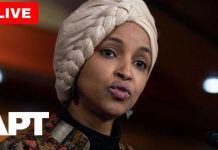
President Biden’s eleventh-hour pardons have sparked intense debate, underscoring the ongoing divide within the American political landscape.
Key Takeaways
- President Biden issued preemptive pardons to Dr. Fauci, Gen. Milley, and members of the January 6 committee.
- The pardons aim to shield these individuals from the incoming Trump administration’s anticipated legal actions.
- Biden views the pardons as a safeguard against politically motivated prosecutions.
- Critics argue the pardons reflect corruption and a failure to hold individuals accountable.
- There are calls for continued investigations, particularly concerning Fauci’s role in the COVID-19 pandemic.
Controversial Final Hours
In an unprecedented move, President Joe Biden utilized his executive powers to issue last-minute pardons to high-profile figures, including Dr. Anthony Fauci and retired General Mark Milley—along with several members of the House committee probing the January 6 Capitol incident. This decision, made during his waning hours in office, drew immediate and polarized reactions from across the political spectrum.
Biden’s intention was clear—protect these public servants from potential legal actions by the incoming Trump administration, which had signaled its intent to target political rivals. This act underscores Biden’s commitment to safeguarding those he believes served with honor during their tenures.
Political and Legal Implications
“These public servants have served our nation with honor and distinction and do not deserve to be the targets of unjustified and politically motivated prosecutions,” Biden stated, justifying his decision to grant these preemptive pardons. Some observers see this as Biden’s effort to prevent politically motivated investigations, which, as he emphasized, could irreparably harm reputations and finances.
However, critics have expressed concern, arguing that the pardons may be perceived as a cover-up to avoid accountability, especially in light of the divided political climate. The pardons do not imply admission of any wrongdoing, but they have certainly set a contentious precedent for future political and judicial proceedings.
Diverse Reactions and Calls for Accountability
President Biden’s use of such a wide scope of pardons is unprecedented, potentially transforming a constitutional power intended as a tool of forgiveness into a defense mechanism against expected political retribution. This has led to further discussions around the limits and implications of executive pardon powers.
While some see these pardons as a precautionary measure to maintain the integrity of those who served, others demand transparency and further investigations into the actions of those pardoned, particularly Dr. Fauci’s handling of pandemic responses. Indeed, the pardons have spotlighted the contentious shift in administration and the enduring repercussions of the Capitol attack investigations.
Sources:
- https://www.nbcnewyork.com/news/business/money-report/biden-pardons-dr-anthony-fauci-gen-milley-jan-6-committee-members/6113991/?os=wtmbrgj5xbahrefapp&ref=app
- https://www.theguardian.com/us-news/2025/jan/20/biden-pardons-fauci-milley
- https://twitchy.com/amy-curtis/2025/01/20/biden-preemptively-pardons-fauci-j6-committee-n2406972
- https://www.nytimes.com/2025/01/20/us/politics/biden-pardons-fauci-milley-cheney-jan-6.html



